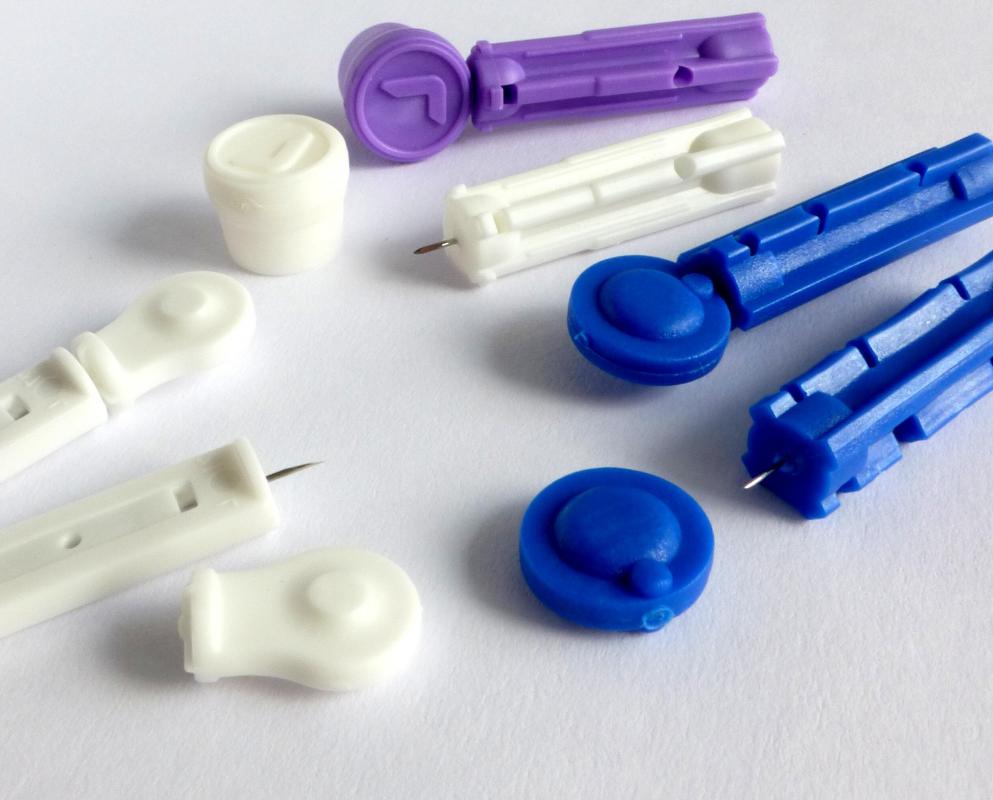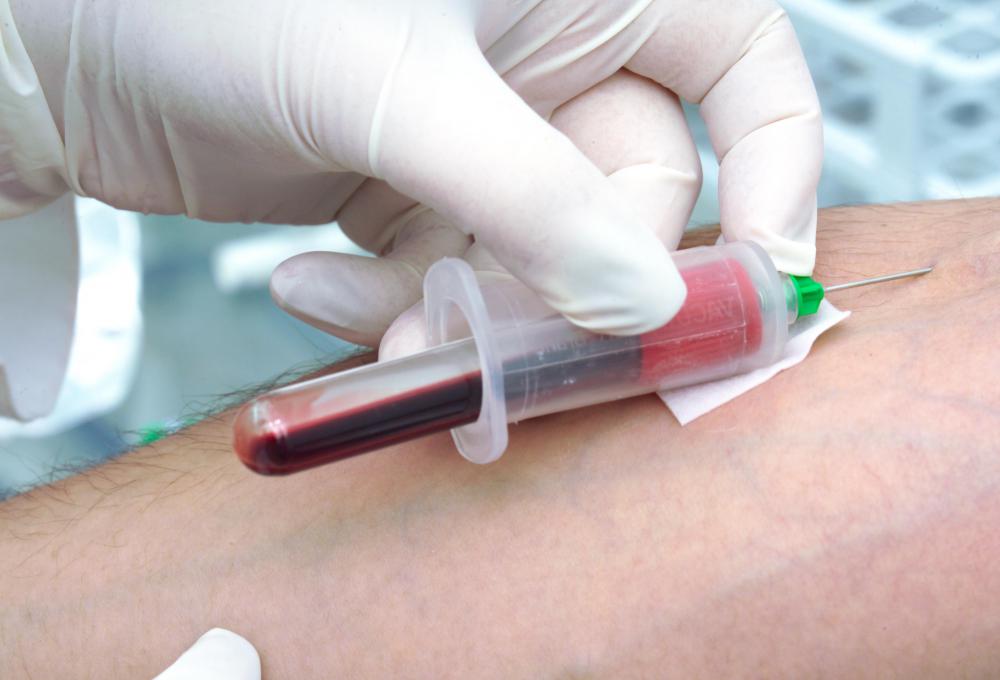At WiseGEEK, we're committed to delivering accurate, trustworthy information. Our expert-authored content is rigorously fact-checked and sourced from credible authorities. Discover how we uphold the highest standards in providing you with reliable knowledge.
How do I Choose the Best Phlebotomy Courses?
Determining a long term career path is necessary to choose the best phlebotomy courses. There are many directions that a career in phlebotomy can go, and choosing the right mix of classes can make finding a job and advancing throughout your career much easier. At its most basic level, phlebotomy is the practice of drawing blood.
Phlebotomists may work in the hospital or mobile setting. They collect blood, either for tests, or for blood donation. A phlebotomist who has only taken basic phlebotomy courses will draw blood from a vein using a technique called venipuncture. If only a small amount of blood is needed, they may use a small lancet to obtain blood by sticking the finger.

There are more advanced techniques in phlebotomy, and carefully choosing phlebotomy courses that teach these skills provide more career options. Some phlebotomists receive specialized training in order to draw blood from arteries. Arteries, which carry blood away from the heart, have much more pressure on them than veins, and when an artery is compromised blood is released with great force. Phlebotomists who take special courses learn how to safely draw blood from arteries located around the wrists.

Phlebotomists are permitted to give intramuscular and subcutaneous injections. For a phlebotomist hoping to work in the hospital setting, or in a physician’s office, these skills are valuable. The ability to administer injections reduces the workload on more highly paid doctors and nurses, which saves the facility money. Taking phlebotomy courses that teach proper injection protocol can be very valuable.

Regulations vary, but some states allow phlebotomists to perform saline flushes and administer Heparin. Again, these are valuable skills that reduce costs to the employer, making people with this training more valuable. If you move from a state where phlebotomists are not permitted to perform these tasks, to one where they are, continuing education phlebotomy courses that cover these skills make a good investment.

While some career centers provide two to four month certification programs in phlebotomy, many phlebotomists choose to earn an Associate degree. Community colleges often offer a two year program of phlebotomy courses that combines phlebotomy skills with other related subjects. At the end of two years, the graduate is trained as a clinical laboratory technician. This training opens up many more career opportunities to the phlebotomist, as does certification through the American Society of Clinical Pathologists, American Association of Medical Personnel, National Phlebotomy Association, or another of the variety of credentialing agencies in the health care field.
AS FEATURED ON:
AS FEATURED ON:
















Discussion Comments
For people who already work in a medical facility or doctor's office, sometimes the training is available at their job that can help them advance into a phlebotomy position. Since phlebotomists are often in need in medical offices, sometimes the staff themselves prefer to train new employees.
People interested in this field who already work in medicine should check with their bosses about training options. They may be able to get all of the training they need while they work, then all they would have to do is take a test for phlebotomy certification.
In order for someone to get the skills she or he needs to be a really good phlebotomist, I think that it is important that she or he get training at an accredited school. This type of training will also help a new phlebotomist find the best jobs available in the field.
If this is the career path that a person chooses to take, the best phlebotomy training is for him or her to simply get an associates degree.
Post your comments